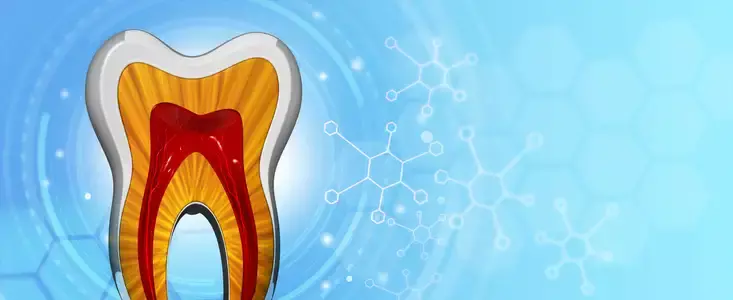If you’ve never had a root canal before, we know the procedure can sound intimidating. Many people believe that a root canal is one of the most invasive and painful dental procedures. However, only 17% of people who have had a root canal describe it as their most painful dental visit. A root canal is nothing to be ashamed of. According to the American Association of Endodontists (AAE), more than 41,000 root canals are performed every day. This common procedure is extremely important in the preservation of your natural teeth. If you experience any of the symptoms below, contact Anderson & Atkins, DDS for an appointment. If you do need a root canal, the sooner we take care of the problem, the healthier your teeth and gums will be.
Symptoms of a Root Canal
1. Persistent Tooth Pain
Consistent tooth pain is an alarm warning you that something is wrong. Pain in your teeth, jaw, or face should not be disregarded. If you feel a sharp pain when you eat or touch a specific tooth, you may have an infection that needs to be treated with a root canal. The pain may be instantaneous, but if it occurs regularly, or lingers throughout the day, don’t delay in making an appointment with your dentist.
2. Temperature Sensitivity
Along with a sensitivity to biting pressure, you may notice a sharp pain when you eat or drink something hot or cold. If you wince when you take a sip of hot coffee, or struggle to eat a bowl of your favorite Blue Bell flavor, it’s time to pay attention. Pain when you consume something hot or cold typically indicates an infection or nerve damage in your tooth.
3. Tooth Discoloration
If your tooth is discolored, you may have an infection in the pulp of your tooth. The pulp is the soft center of your tooth that contains the nerves and blood vessels. It reaches from the crown of your tooth to its roots. If the internal tissue of the tooth breaks down, or you experience trauma to the tooth, the roots can become damaged and the tooth begins to look gray. However, it is possible to save the tooth with a root canal.
4. Swollen Gums
Swollen gums near a painful tooth are often caused by acidic waste products from dead pulp tissues. It may also show up as a pimple or abscess on your gum. Even if the swelling comes and goes, it is crucial to make an appointment and let your dentist determine whether or not you need a root canal.
5. Chipped or Cracked Teeth
It is not uncommon to chip or crack a tooth while playing a contact sport, chewing on something hard, or in an accident. An injured tooth opens the door for bacteria and can lead to an infection. In some cases, an injury results in nerve damage even if the tooth doesn’t chip or crack. If you’ve experienced trauma to your tooth, your dentist may want to perform an X-Ray to determine the extent of the damage and decide the best course of action.
A root canal is a common procedure that removes bacteria and decay from your tooth, disinfects the surrounding area, fills the empty roots, and seals the tooth to prevent further decay. For a detailed explanation of a root canal, watch this video from the AAE.
Dr. Anderson and Dr. Atkins are skilled and experienced in performing a root canal procedure in the Bryan/College Station office. If you experience any of the symptoms that may require a root canal, contact Anderson & Atkins Dentistry today.
Share
Did you know that your smile is the most recognizable part of your face? A beautiful smile also boosts your self-confidence and promotes positive interactions in your professional and social life. That explains why the American Academy of Cosmetic Dentistry has seen a significant increase in cosmetic dental procedures over the last decade. Cosmetic dentistry





